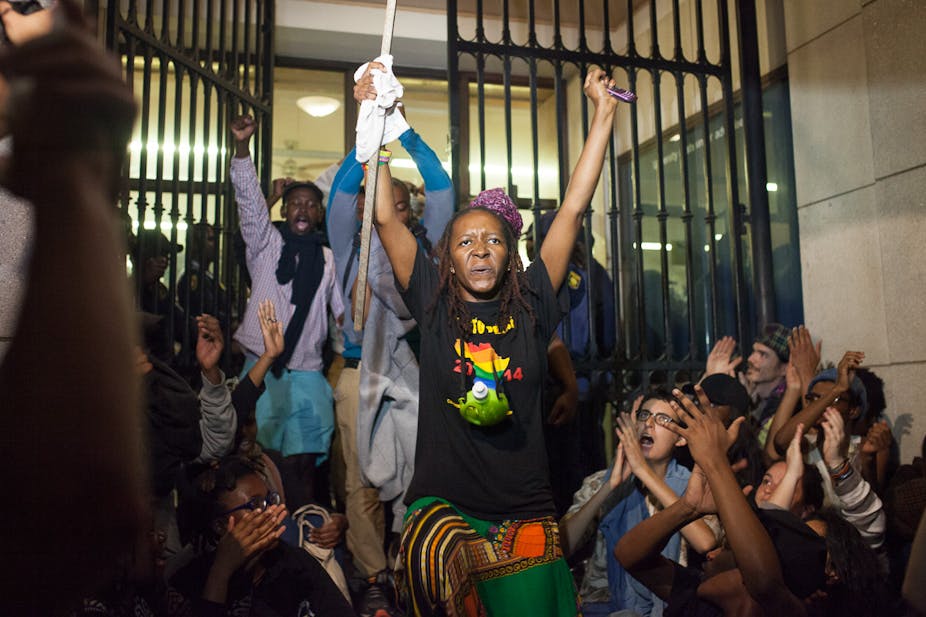A new piece of draft legislation could give South Africa’s higher education minister increased power over the country’s universities.
The minister will be allowed to “determine transformation goals for the higher education system and institute appropriate oversight mechanisms”. Transformation in the South African context refers to changing stereotypical views of others based on race. It relates to employment patterns and, at universities, to access and success, social inclusion and cohesion.
The proposed legislation offers no detail about what form any interventions might take, nor what punitive measures universities may face if they don’t comply.
If it becomes law, government will have substantially increased legislative powers over universities. This marks something of a return to pre-1994 state intervention, which allowed the state to appoint university administrators and determine student and staff composition. This was especially true for historically black universities and technikons. There, even the curriculum and budget had to be approved by the government.
The proposed changes have coincided with the return of police violence to campuses. The apartheid state also intervened in universities to suppress student protests against institutionalised racism.
Students at the forefront of demands for change
Today it is students who are calling for increased state intervention to undo the colonial function of universities.
By colonialism, they mean the way in which whiteness and patriarchy are reproduced in universities. This is done through curricula that are disengaged from African scholarship. It exists in financial barriers to black working class students and the exploitation of black workers through outsourcing. It is present in the overwhelming dominance of white male academics and management.

Some student organisations argue that institutional autonomy has become a barrier to decolonisation. This view is echoed by the current higher education minister.
This notion of autonomy as opposed to accountability – and so to decolonisation – is common. But is it justified?
To answer this question, it is useful to examine the recent history of universities in other parts of Africa.
During the 1980s and 1990s, many universities lost autonomy and became handmaidens of the state. State censorship and repression increased. Many academics fled the continent, and those who remained drew up the 1990 Kampala Declaration on Intellectual Freedom and Social Responsibility.
These universities’ experiences offer valuable insights for South Africa.
A stifling environment
In their book Academic Freedom in Africa, leading intellectuals Mamadou Diouf and Mahmood Mamdani provide an excellent caution against the path some South Africans are now advocating.
They argue that universities in Africa often invoked institutional autonomy to retain their elite and colonial role after independence. This led to many politicians, academics and students viewing academic freedom and institutional autonomy as a denial of contextual relevance and development.
The discourse was polarised. You were either for decolonisation or for academic freedom and institutional autonomy. There was no space for a position that combined both ideas.
Many academics entered into close relationships with political elites and development agencies. Academics who did not were often seen as political opponents and silenced.
Universities like Dar es Salaam in Tanzania, Ibadan in Nigeria and Makerere in Uganda broke new intellectual ground during this period. But the political and discursive space for these developments to persist was increasingly narrow.
The history school of Dar es Salaam, for instance, fundamentally altered how history was done across the world. It foregrounded voices and perspectives from the global South. It changed how historical resources were used. But, under the pressure of state censorship, the political appointment of academics and a crackdown on student politics, it could not sustain its work.
The problem was that universities were not intended for the public, but for creating an elite. Instead, Mamdani and anthropologist Francis Nyamnjoh suggest, they uprooted a small number of young people from their communities – then educated them in colonial languages and knowledge systems, like “potted plants in greenhouses”.
No public sympathy
During the 1990s, African governments began to intervene more forcefully in universities.
People outside the universities had no reason to protect them. Unlike schools and hospitals, they were not viewed as a public good worth defending. Academics and students were left alone to fight the economic and political assault on universities. By and large, they failed.
Only then did scholars ask themselves what they had done wrong. In this reflection, most argued that institutional autonomy and social accountability are not in opposition to each other. Instead, they are actually mutually constitutive. After all, intellectuals can only fulfil their social responsibility if they are free to do so.
Today, these countrys’ universities are slowly rebuilding themselves. They are attempting to re-engage the thousands of academics and intellectuals who now live in the diaspora.
What now for South Africa?
There is much wisdom in these academics’ response. We would add that institutional autonomy needs to be grounded in society’s understanding of universities as a public good defined by internal democracy. Students, workers and junior academics must have a direct say in how universities are run. This includes influencing the intellectual direction of courses, the race, class and gender composition of staff and students and the distribution of salaries.
Such intellectual and political alliances are necessary for remaking our universities as spaces in which South African society can be re-imagined. The country remains colonial in many respects, built on structural unemployment, dispossession and poverty.
To imagine a different way of being we need autonomous, free universities. It is to this end that institutional autonomy becomes worthy of our protection.

